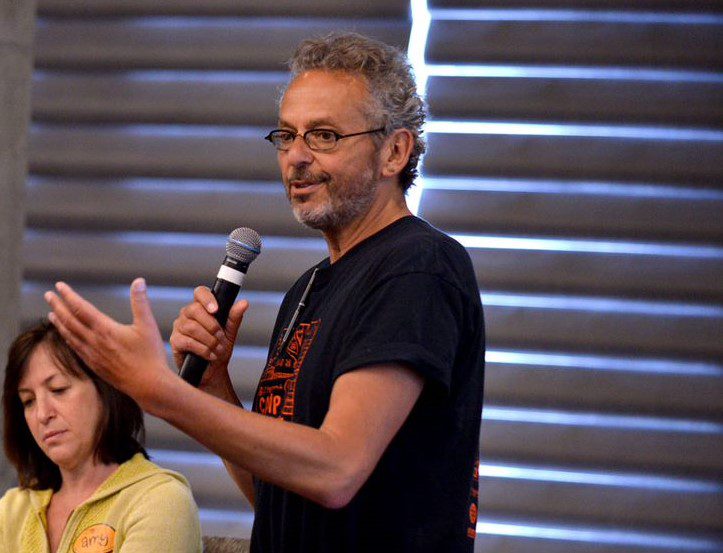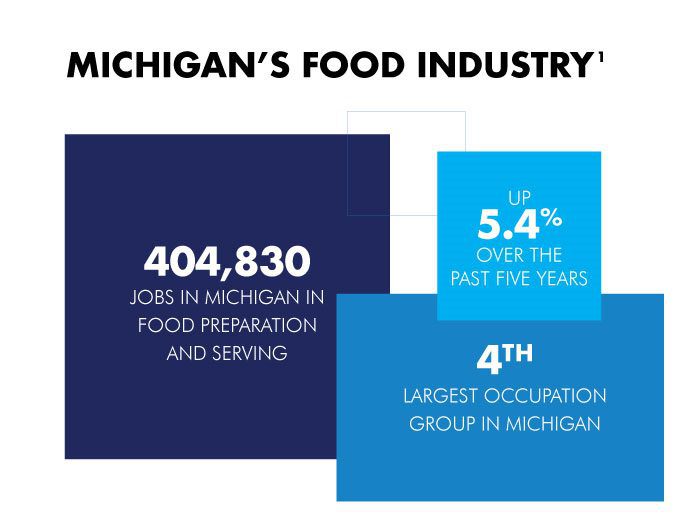Pastrami and Tunisian Lemons: How Ari Weinzweig Built an Iconic Food Business
May 29, 2019 Ari Weinzweig is co-founding partner of Zingerman’s Deli, which he started in 1982 with Paul Saginaw. Over the years, the small but mighty deli grew from a 1,300-square-foot deli in Ann Arbor to the Zingerman’s Community of Businesses, which employs more than 700 people across several enterprises such as a Korean restaurant, bakery, creamery, and Zingerman’s Roadhouse — a popular American comfort food restaurant that’s in the running for a James Beard award for outstanding service this year. Zingerman’s is equally known for its hearty corned beef and pastrami sandwiches as it is for its organizational culture. It’s often recognized for its business practices, such as putting employees on a path to partnership and empowering every worker with the resources they need to act like owners through open book management.
Ari Weinzweig is co-founding partner of Zingerman’s Deli, which he started in 1982 with Paul Saginaw. Over the years, the small but mighty deli grew from a 1,300-square-foot deli in Ann Arbor to the Zingerman’s Community of Businesses, which employs more than 700 people across several enterprises such as a Korean restaurant, bakery, creamery, and Zingerman’s Roadhouse — a popular American comfort food restaurant that’s in the running for a James Beard award for outstanding service this year. Zingerman’s is equally known for its hearty corned beef and pastrami sandwiches as it is for its organizational culture. It’s often recognized for its business practices, such as putting employees on a path to partnership and empowering every worker with the resources they need to act like owners through open book management.
But the Chicago native who studied Russian history at the University of Michigan had no “mindful intention of going into business” before opening the beloved community staple.
Weinzweig came to Ann Arbor in the late 1970s and like many college students, had no vision of what came next after graduation — he just knew he didn’t want to go home. He got a job washing dishes at the now-shuttered downtown Ann Arbor restaurant Maude’s, where he discovered his passion for cooking and food. It was also where he met key individuals who would eventually work with him at Zingerman’s like Saginaw and many others.
In 1981, Saginaw reached out to Weinzweig about a space near his recently opened business —Monahan’s Fish Market in Kerrytown. The two bonded over the fact they couldn’t find good deli food like they had in their respective hometowns (Saginaw hailed from Detroit), so the two opened Zingerman’s with two employees and a $20,000 bank loan.
While Zingerman’s has become one of the country’s top specialty food stores, Weinzweig is committed to staying firmly rooted in Ann Arbor, the community where Zingerman’s was born.
“A healthy business is always well integrated to the ecosystem in which it’s existing, growing, and it should be informed, just like plants by the terroir of the soil, by the community’s culture, and then in turn it should inform that culture effectively,” he says.
While several products of are made locally from the hearth-baked breads at the bakery to the fresh and aged cheeses from the creamery, Zingerman’s offers a curated selection of unique, full-flavored traditional foods, which may or may not be local.
In today’s food obsessed culture, selling extra-virgin olive oil is nothing special. While Zingerman’s certainly did not invent extra-virgin olive oil, it did carve a niche for itself by offering foods that are not found everywhere, such as 12-year aged vinegar from South Africa and preserved lemons from Tunisia.
“We’re helping people have a better quality of life and supporting the idea that higher quality pepper earns a higher price. And when you farm better quality pepper, they’re farmed in more ecologically and more ecologically sustainable ways. So, there’s a lot of good that comes from that too.”

Dorothy Hernandez is a freelance food journalist whose work has appeared in NPR, Roads and Kingdoms, Eater, Thrillist, and more.
